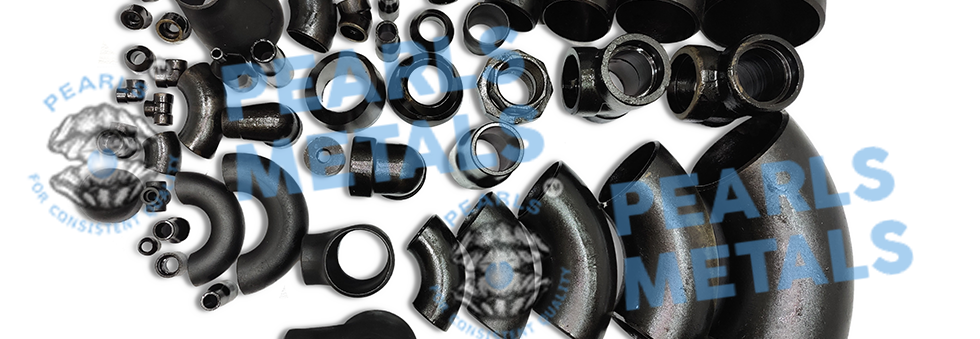Why Carbon Steel Fittings Are a Popular Choice in Industrial Piping Systems

Why Carbon Steel Fittings Are a Popular Choice in Industrial Piping Systems
Introduction:
When it comes to choosing materials for industrial piping systems, carbon steel fittings are among the most widely used options. These fittings play a crucial role in connecting, diverting, and controlling the flow of fluids and gases, making them indispensable in industries ranging from oil and gas to manufacturing. But what makes carbon steel fittings such a popular choice? In this blog, we’ll explore the key reasons behind their widespread use in industrial applications and why they continue to be a go-to material for piping solutions.
1. Durability and Strength
One of the primary reasons carbon steel fittings are favored in industrial piping systems is their exceptional strength and durability. Carbon steel, due to its high carbon content, offers impressive tensile strength and is able to withstand high-pressure conditions and mechanical stresses. This makes it ideal for industries that require robust and long-lasting piping solutions, such as oil and gas, power plants, and heavy manufacturing.
2. Cost-Effectiveness
Compared to other materials like stainless steel or titanium, carbon steel is generally more affordable, which makes it an attractive option for industries looking to optimize costs. The cost savings are especially notable in large-scale piping installations where extensive networks of fittings are required. Despite being cost-effective, carbon steel fittings still provide reliable performance in demanding environments.
3. Versatility in Application
Carbon steel fittings are highly versatile, suitable for a wide range of applications, including high-temperature, high-pressure, and corrosive environments. Their adaptability makes them perfect for use in everything from small pipelines to large industrial systems. Carbon steel fittings are available in various shapes and sizes, including elbows, tees, reducers, and flanges, allowing them to meet the specific needs of diverse industrial processes.
4. Corrosion Resistance with Proper Coating
While carbon steel fittings are not inherently resistant to corrosion, they can be treated with protective coatings or lined with other materials like galvanizing or epoxy coatings to enhance their corrosion resistance. With proper maintenance, carbon steel fittings can perform effectively in corrosive environments such as those found in the chemical, petrochemical, and water treatment industries.
5. High Performance at Elevated Temperatures
Carbon steel fittings are well-suited for high-temperature environments, making them ideal for industries such as power generation and refineries, where piping systems often operate at elevated temperatures. Their ability to maintain structural integrity at higher temperatures further contributes to their popularity in industrial applications.
6. Easy Availability and Wide Selection
Carbon steel fittings are readily available and produced in a variety of sizes and configurations, making them easy to source for industrial projects. Manufacturers often offer fittings that adhere to various international standards, ensuring compatibility and ease of installation in piping systems worldwide.
7. Ease of Fabrication and Welding
Another reason carbon steel fittings are so commonly used is their ease of fabrication and welding. Carbon steel can be easily welded, threaded, or forged, making it convenient for creating custom fittings or modifying piping systems during installation. This ease of processing helps speed up construction timelines and reduces labor costs.